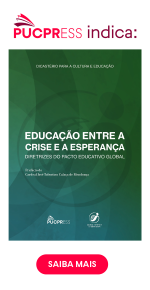A Kénosis do Espírito Santo e a refiguração ecológica: Um olhar pneumatológico à Luz da Laudato Si'
DOI:
https://doi.org/10.7213/2175-1838.17.001.DS07Abstract
This article investigates the action of the Holy Spirit in creation and its relation to ecological refiguration in light of the Encyclical Laudato Si’. From a Trinitarian perspective, it highlights the role of the divine Ruah as an expression of God's loving self-giving, which permeates, sustains, and vivifies all creation. The Holy Spirit, as relationship, communion, and love, is the vital principle that animates all creatures and underpins the ecological ethos proposed by Laudato Si’. Drawing inspiration from the thought of Sergei Bulgakov, the article explores how the kenosis of the Holy Spirit—understood as an expression of divine humility that gives itself to vivify and renew creation—manifests in the history of salvation. This kenosis is intrinsically linked to that of the Son, revealing the Trinitarian dynamic of self-giving, which calls humanity to a universal solidarity capable of transcending individualism and promoting ecological justice. Within this horizon, the cosmic Christ, as the center of creation, is presented as the key to understanding the unity between the work of the Son and the mission of the Spirit. The Spirit is thus presented as the principle of unity and renewal of creation, the mediator of an incarnate spirituality that grounds ecological refiguration—understood here as a process of ethical, spiritual, and relational transformation that integrates care for our Common Home with the experience of faith. In creation and history, the Spirit acts as a transformative force, leading humanity to recognize the dignity of all creatures and the urgency of integral care for the world. Laudato Si’ illuminates this dynamic by presenting integral ecology not merely as an environmental issue but as an expression of divine love and God’s compassionate care, mediated by the Spirit and lived in the communion of the Church. It concludes that a pneumatology of kenosis offers a fundamental theological horizon for addressing contemporary ecological challenges, fostering a spirituality that integrates creation, ecological refiguration, and social transformation. From this perspective, the Holy Spirit is reaffirmed as the renewer of life, the sustainer of hope, and the inspirer of an ethical commitment to socio-environmental justice.
Downloads
Metrics
Downloads
Published
How to Cite
Issue
Section
License
O(s) autor(es) transfere(m), por meio de cessão, à EDITORA UNIVERSITÁRIA CHAMPAGNAT, pessoa jurídica de direito privado, inscrita no CNPJ/MF sob o n.º 76.659.820/0009-09, estabelecida na Rua Imaculada Conceição, n.º 1155, Prado Velho, CEP 80.215-901, na cidade de Curitiba/PR, os direitos abaixo especificados e se compromete a cumprir o que segue:
- Os autores afirmam que a obra/material é de sua autoria e assumem integral responsabilidade diante de terceiros, quer de natureza moral ou patrimonial, em razão de seu conteúdo, declarando, desde já, que a obra/material a ser entregue é original e não infringe quaisquer direitos de propriedade intelectual de terceiros.
- Os autores concordam em ceder de forma plena, total e definitiva os direitos patrimoniais da obra/material à EDITORA UNIVERSITÁRIA CHAMPAGNAT, a título gratuito e em caráter de exclusividade.
- A CESSIONÁRIA empregará a obra/material da forma como melhor lhe convier, de forma impressa e/ou on line, inclusive no site do periódico da EDITORA UNIVERSITÁRIA CHAMPAGNAT, podendo utilizar, fruir e dispor do mesmo, no todo ou em parte, para:
- Autorizar sua utilização por terceiros, como parte integrante de outras obras.
- Editar, gravar e imprimir, quantas vezes forem necessárias.
- Reproduzir em quantidades que julgar necessária, de forma tangível e intangível.
- Adaptar, modificar, condensar, resumir, reduzir, compilar, ampliar, alterar, mixar com outros conteúdos, incluir imagens, gráficos, objetos digitais, infográficos e hyperlinks, ilustrar, diagramar, fracionar, atualizar e realizar quaisquer outras transformações, sendo necessária a participação ou autorização expressa dos autores.
- Traduzir para qualquer idioma.
- Incluir em fonograma ou produção audiovisual.
- Distribuir.
- Distribuir mediante cabo, fibra ótica, satélite, ondas ou qualquer outro sistema que permite ao usuário realizar a seleção da obra ou produção para recebê-la em tempo e lugar previamente determinados por quem formula a demanda e nos casos em que o acesso às obras ou produções se faça por qualquer sistema que importe em pagamento pelo usuário.
- Incluir e armazenar em banco de dados, físico, digital ou virtual, inclusive nuvem.
- Comunicar direta e/ou indiretamente ao público.
- Incluir em base de dados, arquivar em formato impresso, armazenar em computador, inclusive em sistema de nuvem, microfilmar e as demais formas de arquivamento do gênero;
- Comercializar, divulgar, veicular, publicar etc.
- Quaisquer outras modalidades de utilização existentes ou que venham a ser inventadas.
- Os autores concordam em conceder a cessão dos direitos da primeira publicação (ineditismo) à revista, licenciada sob a CREATIVE COMMONS ATTRIBUTION LICENSE, que permite o compartilhamento do trabalho com reconhecimento da autoria.
- Os autores autorizam a reprodução e a citação de seu trabalho em repositórios institucionais, página pessoal, trabalhos científicos, dentre outros, desde que a fonte seja citada.
- A presente cessão é válida para todo o território nacional e para o exterior.
- Este termo entra em vigor na data de sua assinatura e é firmado pelas partes em caráter irrevogável e irretratável, obrigando definitivamente as partes e seus sucessores a qualquer título.
- O não aceite do artigo, pela EDITORA UNIVERSITÁRIA CHAMPAGNAT, tornará automaticamente sem efeito a presente declaração.



